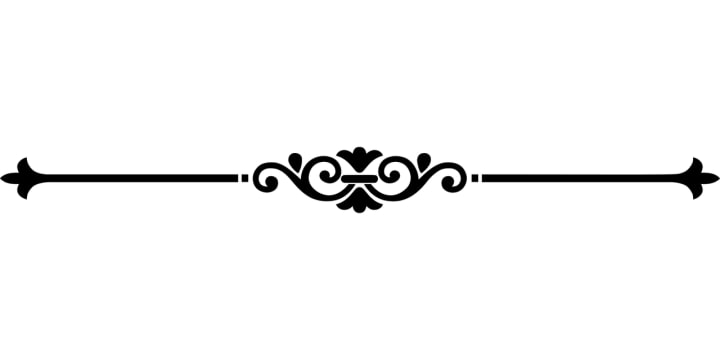Why Do We Keep Talking About "True Love"
Love means different things to different people

I have a vehement dislike for the term “true love” because it limits love. It suggests that if your love doesn’t fit a certain mold or have certain characteristics, it isn’t “true.” It will not last if you don’t “do” love right.
That simply isn’t true though, is it? There are many types of love. Some people have arranged marriages and grow to love their partners. Others fall in love at first sight and live long and happy lives together. Yet other people date for a long time, follow it up with a long engagement, have babies, buy a house, and eventually get married.
Even more people have shorter loves. They live with someone, or they get into a relationship with someone, and they love them very strongly. But, for whatever reason, they part ways and move in different directions. Does that make the love they have for each other any less “true?”
“True love” according to the internet
According to Stacey Laura Lloyd, writer for LiveAbout.com, this is what “true love” is:
Essentially, true love means that you have an unwavering, unbreakable and unparalleled fondness and devotion for your partner. It’s also defined by an emotional as well as physical connection with him or her that runs immeasurably deep, and life without your significant other would be practically unthinkable.
Maya Taylor, whose friends call her a “relationship therapist” and writer at True Love Words says,
True love can wait through anything . . . you can see deeply into your lover’s soul . . . will last forever . . .
These writers do not have any professional credentials though. They are a reflection of how the general population defines “true love.” It is measured by what they want to feel and how they are supposed to feel.
So, what does science say about love?
Richard Schwartz is an associate professor of psychiatry at Harvard Medical School and he says,
Love also turns on the neurotransmitter dopamine, which is known to stimulate the brain’s pleasure centers. Couple that with a drop in levels of serotonin — which adds a dash of obsession — and you have the crazy, pleasing, stupefied, urgent love of infatuation.
The only way that science can define love is by the physical characteristics of those that claim love. There are chemical indicators in the brain that are present in people that say that they are in love.
This is not enough thought because Schwartz also points out that love has phases. These chemical changes are not present over time.
Using the term “true love” diminishes some forms of love
When people insist that there is one “true love” it suggests that no other love can measure up to it. It diminishes the love that we give and receive from others. It suggests that this “true love” is the only kind of love worth fighting for or finding in our lives.
When we put one kind of love on a pedestal and diminish other forms of love, we feel less satisfied if we can’t find that “true love” that everyone hypes up as being the be-all and end-all of love. The idea of “true love” leaves people who don’t find it feeling like something less, even undeserving.
I want to propose that we stop using the term “true love” and accept love in our lives from different perspectives.
I love my deceased husband still. It’s been two years since he passed away, but I don’t love him any less than I did when he was alive. We were married for 13 years and for the last 10 years or so, we had a sexless marriage because of various reasons. I loved him even then, and I was committed to our marriage. And the fact that I now love someone else doesn’t diminish the love I have for him.
I love my current primary partner even though we don’t live together. When we are together, we work. We’re passionate, caring, excited to be together. We have only been together for a little less than a year. It is still love.
I love my kids, my granddaughter, other family members. I love friends.
Is any of it more true than the others? No. Love is love. I accept love into my life and I give it freely, even when the other person isn’t able to express it in how society deems appropriate. I have loved many people in my life. The fact that our love didn’t last forever doesn’t mean it was any less true. The father of my children and I had love. It was strong, but we were very different people. Living together became impossible. But I still loved him. I loved other partners. I loved people that weren’t able to use the word “love” without feeling trapped.
Love is wonderful and uplifting. Sometimes love is hard. It even hurts when it is not returned. But love is a good thing, and it is time to accept love where it is given and allow ourselves to believe that any love we feel is true.

If you like what you read give the heart a tap or leave a tip!
If you want more of what I write, click that Subscribe button (join Vocal as a free member to become a reader and have your own feed of your favorite writers).
About the Creator
Danielle McGaw
Freelance writer | More about me here: http://dani.space
Sex | Dating | Relationships | Mental Health | Self | Fiction






Comments
There are no comments for this story
Be the first to respond and start the conversation.